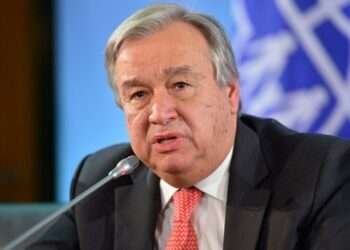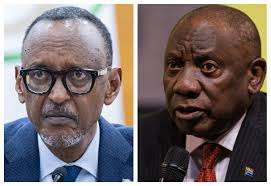In recent weeks, global economic tensions have once again taken center stage as the United States and European Union confront China over trade practices.
Friction between the West and the world’s second-largest economy has intensified, as Beijing and Washington compete for supremacy in advanced technology.
Last month, the United States hiked tariffs on $18bn worth of imports from the country, targeting strategic sectors like electric vehicles, batteries, steel and critical minerals, a move Beijing warned would “severely affect relations” between the two superpowers.
China is also facing heightened scrutiny from the European Union, which is preparing to impose tariffs of up to 38 percent on its EVs by July 4, citing concerns over unfair competition caused by heavy state subsidies.
Amidst these developments, China’s Premier, Li Qiang has urged nations to resist the trend of “decoupling,” emphasizing the need to manage economic tensions that are brewing with the European Union.
Worries about a disengagement between China and major economies in the West have rumbled for years as they clash over a range of issues including trade and technology.
“We should broadly open our minds, work closely together, abandon camp formations, (and) oppose decoupling,” Li stressed.
Li’s comments came during a speech at the opening of a World Economic Forum conference known as the “Summer Davos”, held this year in the northeastern Chinese city of Dalian.
The Premier also called on parties to “maintain the stability and smooth operation of industrial and supply chains, promote the liberalisation and facilitation of trade and investment, guide and promote healthy global development, and gather powerful efforts for world economic growth.”
Indeed, the notion of decoupling, whereby economies sever ties and reduce interdependence, represents a risky proposition in an increasingly interconnected world.
While tensions may arise over trade practices and economic policies, the path forward lies not in isolation but in negotiation and compromise.
European leaders including Commission head Ursula von der Leyen have insisted the bloc does not intend to decouple from China, seeking instead to “de-risk” its market as political confrontations with Beijing mount.
Brussels’ trade policy has turned increasingly protective and aligned with that of Washington over concerns China’s production-focused development model could see it flooded with cheap goods as Chinese firms look to step up exports amid weak domestic demand.
Beijing has warned Brussels it risks opening up a new front in the West’s trade war with Beijing – which began with Washington’s initial import tariffs in 2018 – and opened an anti-dumping probe into EU pork imports following the EU’s tariff decision.
Li Confident In China Hitting Economic Growth Target
Moreover, Li said that he was confident the world’s second-largest economy would hit its full-year economic growth target of around 5%.
“The rapid growth of new industries and new driving forces has strongly supported and sustained the healthy development of China’s economy. Since the beginning of this year, China’s economy has maintained an upward trend… and is expected to continue to improve steadily over the second quarter.”
Li Qiang
The Chinese Premier told delegates at the World Economic Forum meeting in Dalian, “China’s production of advanced electric vehicles, lithium-ion batteries and photovoltaic products, etcetera, first met our domestic demand, but also enrich global supply.”
The United States and European Union have both accused China of having over-capacity in green technologies and announced steps to protect their respective domestic industries from what they consider to be unfair competition from Chinese firms looking to step up exports amid weak domestic demand.
China has rejected accusations that it has an over-capacity problem or that its firms benefit from unfair subsidies.
“The rapid rise of China’s new industries is rooted in our own unique comparative advantages,” Li noted.
“Furthermore, our consumers are more receptive to new technologies,” he added.
READ ALSO: Ukraine To Get First Tranche Of Military Aid From Frozen Russian Assets





















